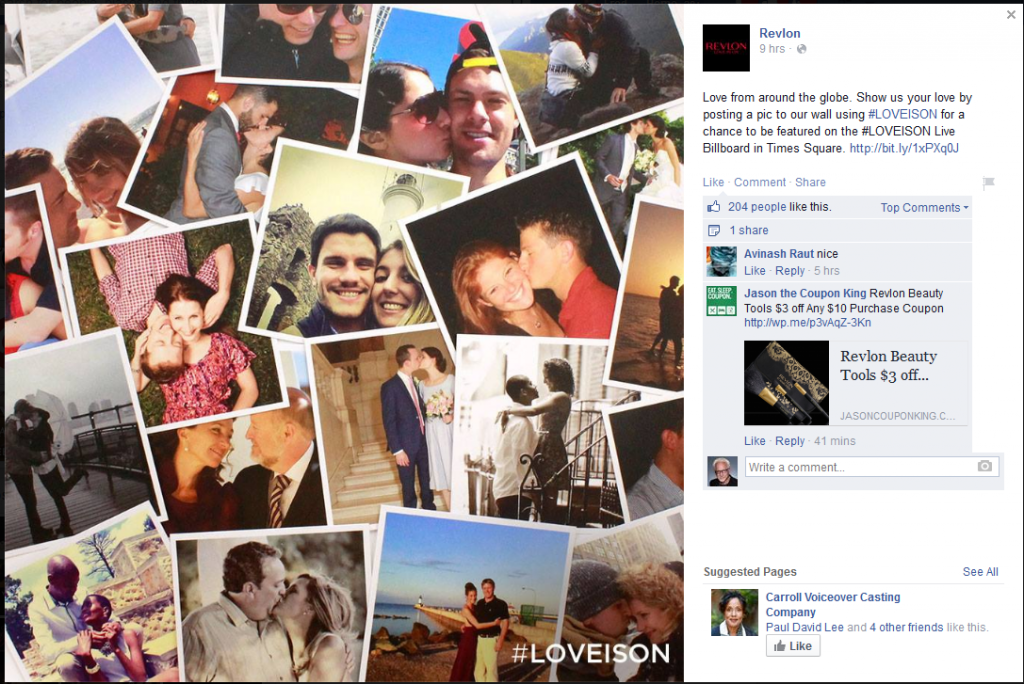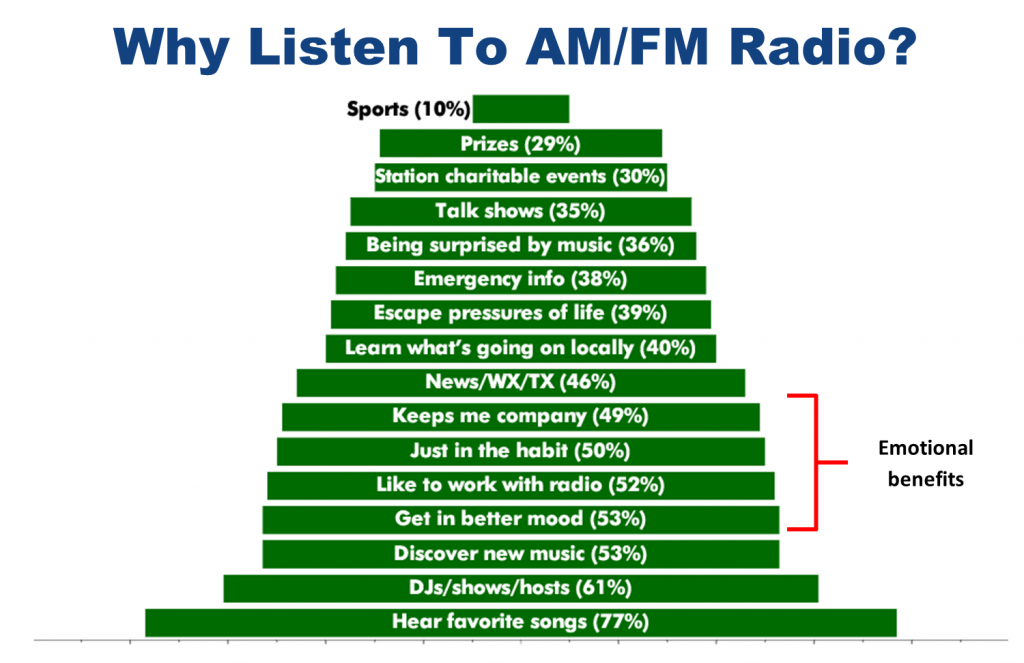What’s your move when you’re a legacy player in a highly crowded, competitive industry and the new kids on the block are in favor with young, desirable consumers?
No, we’re not talking about radio. Today’s post is about cosmetics. And the old-line player is none other than Revlon, a brand that has been around as long as all of us, now struggling for relevance and resonance along the makeup aisle of your neighborhood drug store. The New York Times reports this venerable company now ranks #10 on a list of 12 cosmetics brands.
In that industry, the play is often to sign the hottest star of the day, and put her out there as your spokesmodel, hoping you can influence today’s Millennials. Or by marketing individual products and their benefits (easy to apply, longer lashes, etc.).
But recently, Revlon reached the conclusion that the tried-and-true marketing methods couldn’t transform their brand. To get at the essence of their branding and messaging, they recently held a management brainstorming session – the kind we moderate for our client stations, clusters, and broadcast companies.
The Times reports that the net-net of the exercise is a new campaign – “Love is on.” It applies emotion to the Revlon brand, according to David Israel, the executive creative director at AR New York, which created the new campaign that is “looking to find a stronger way to connect with women.”
And what they came up with was a way to reboot the brand by telling “a more emotional story” by using “a more positive message.”
As all the players acknowledge, this is a crowded, competitive business where there’s “a sea of sameness,” according to Lorenzo Delpani, the guy who heads up Revlon.
And so it is for radio broadcasting, an industry that everyone remembers fondly as first exposing them to great music, fun DJs, timely information, and a presence in local emergencies – but now finds itself moving down the ladder of relevance because of newer, digital competitors.
Yet, so many station brands continue to market themselves with meat and potatoes tactics – “Favorites of the ‘80s, ‘90s, and today with fewer commercials and less talk” – while omitting some of the key emotional benefits that fans derive from radio.
Each year in our Techsurvey series, we ask a question that goes right to the heart of broadcast radio’s true appeal – the same kinds of assets that Revlon rediscovered about themselves. In this “pyramid” for the CHR format, you can see that while songs and DJs are of paramount importance to fans, these emotional triggers play a major role in what sets broadcast radio apart from so many of the other options that tempt today’s teens and Millennials.
Too often in radio, we get so clinical and “strategic” that we miss the moment – the real assets and benefits that great brands bring to the media table.
Good luck to Revlon with “Love is on.” The campaign could amount to putting lipstick on a pig. Or it could be a novel way to reconnect with women in a meaningful way.
What’s radio’s emotional rescue?
To find out why your station matters to your listeners, and insights on your benefits that matter, register now for Techsurvey11, launching in early January.
- Media And Technology In 2025: Believe It Or Not! - April 18, 2025
- In Radio, You Just Never Know - April 17, 2025
- The Secret To Making A Great Podcast (And Great Radio) - April 16, 2025






Dear Fred,
thank you for saying out loud what radio people need to hear.
They have become obsessed with technology, perfectly on time and not longer articulated machine sounding robots, I mean hosts and the so called competitors (Rdio, Pandora, etc) and forgot about the heart of radio – the human connection.
They forget that radios (brands) are more than just technology, logos, music, research, flashy competitions, etc.
They need a personality, they need values, they need a legacy. They need a WHY!
Then they need the HOW – their USP – what makes them different front the competition?
And then they need to remember that “People will forget what you said, people will forget what you did but they will never forget how you made them feel!” (Maya Angelou)
Radio is about the human connection. Feelings. But they forgot to put on air interesting people who have values, beliefs and can inspire listeners, make them think, make them angry, happy, sad – make them feel.
And the radios nowadays forgot about the stationality – station personality.
All they talk about is the perfect listener – they know all about her/him.
But they don’t know who they are!
If a radio stations became a person – who would it be? A man or a woman? How old? Favorite film? Book? Song? Lyrics? How would they feel about love? Same sex marriage? Vacation – in a hotel or in a tent? What are her/his beliefs? Values? Goals in life? Dreams? What do they fight for in the world? What are they against?
And when they know all the answers to this and all this comes from their hearts not an agency heart and creative brain, then they should create their on/off air campaigns according to this. And then they will make a difference and get attention of their target audience and thus the LOVE of the listener IS ON their frequency.
Remember what Simon Sinek said: “People will follow if they believe what you believe”.
Lenja
Lenja, I think you expressed this emotional connection better than me. Plus, any reference to Simon Sinek has me hooked. Thanks for the truly insightful comments & for adding so much to my post. The heart of radio is the human connection. I appreciate you reading our blog and for taking the to comment so eloquently.
Fred, as a former radio programmer of over 25 years, the industry has changed so much that it is quite alright to be an observer and remember what brought me there in the beginning. The personalities and the music. With few exceptions , my iPod is soundtrack in the car and you tube has plenty of clips of the personalities. I love my detroit radio friends and miss the days of spontaneous banter, you listened for unpredictable. As a former intern at Riff, the Detroit radio scene will probably never see those days again and I genuinely miss it. Thank you for your passion for a medium I have always loved and claimed. Excellence and compelling never goes out of style.
Chris, thanks for the comment. As you point out, nothing is the way it used to be. But the way forward for radio may be to go back to its roots, its basics, the things that go it do that dance in the first place. We can only hope. Thanks again.